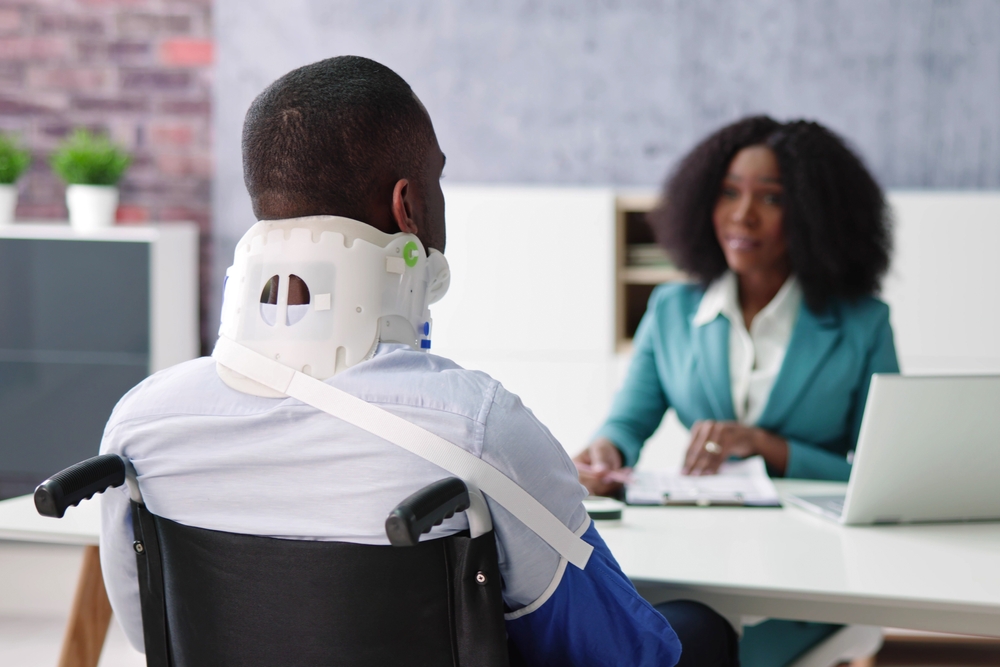When dealing with a case such as a personal injury case, the US judicial system doesn’t take an all-or-nothing approach to its rulings. Instead, a concept known as “comparative negligence” is used to determine how things play out in many situations.
This is one topic that many outside of the legal field aren’t familiar with, but it can have a dramatic impact on your case, even if you’re clearly a victim.
Today, we’re going to go over what comparative negligence is and how it can impact your case to give you a better idea of what to expect in court or negotiations.
What is Comparative Negligence?
Comparative negligence is simple on the surface, but it can get complicated in practice. It’s how the court divides responsibility for an event among the parties involved.
This is crucial because, without it, there wouldn’t be a fair and just level of nuance in the court system. Using a personal injury case as an example, let’s say that you slipped and fell on a company’s property, and while their floor was wet, you ignored the employee trying to warn you just a few feet away.
Yes, the company had an unmarked wet spot that caused your injury, but you also ignored verbal warnings for one reason or another.
Without this concept being applied to relevant cases, the company in our example would have to take full responsibility despite you playing a role in the injury, too.
The Impact of Comparative Negligence on Your Case
While comparative negligence is a positive thing because it leads to a more fair and just judiciary system, it does have some potential impacts on your case.
Sometimes, that impact can be positive, and sometimes it can hurt your case or even be your opponent’s strongest defense.
Here are some of the most common ways your case can be impacted.
1. Reduced Compensation
This is one of the two most impactful ways comparative negligence can impact your case. It can reduce how much your case is worth.
This is because comparative negligence places a much higher degree of nuance on the way that the court makes its decisions. Using our example from earlier, the court could very well determine that you are roughly 50% at fault for the slip and fall accident. The company is responsible for the other 50% because how they didn’t have signage up or clean the mess up as soon as possible.


Let’s say your case was valued at $100,000 after factoring in wages, medical bills, and other relevant costs. Now that the court has determined the company is only 50% at fault for it, your case just went from being a 6-figure payout to $50,000 or less.
That’s a far simpler depiction of the process than it truly is in practice, but you can see just how much comparative negligence can impact your compensation. Since compensation is meant to help you get back on the right track after hefty expenses and losses, such a large reduction to what you’re owed can greatly impact your life.


2. The Defense Often Uses it to Limit Fair Compensation
In theory, comparative negligence is a fair and just system that keeps someone from taking all the blame when the reality is that very few situations are 100% one party’s fault. In practice, it is often a convenient way for the defense to pin you with more blame than you deserve to minimize your compensation.
One thing you can expect is that every tiny detail that could frame you as being at fault, will certainly be used to put more blame on you. Whether it’s something reasonable, like ignoring proper signage, or something ridiculous, like looking in a different direction, the defense will try to shift more blame onto you. In these shared fault cases, even minor details can be used against you to reduce your compensation.
This greatly complicates cases. Even a case that should be clear-cut and easy to get through can suddenly become a mess of litigation and back-and-forth debates.
Not only does this stretch out the case and make it take longer for you to get compensated, but it also increases the opportunity for the defense to build a stronger case than they’d otherwise have. As we mentioned above, they might even be able to greatly reduce the amount of compensation you’re entitled to.
Also read: 9 Reasons You Need a Worker’s Comp Lawyer: How to Protect Your Rights
3. It Can Be Used as Leverage in a Settlement
If you’re partially at fault to a degree that the defense deems useful, they can easily use that as leverage when offering a settlement. It might be framed as risky for you to go to court and get a worse deal, effectively tempting you into accepting a far lower settlement than you might otherwise receive.
The complicated part of this is that sometimes it’s true. Particularly when there are factors that show you contributed to it. The only way to determine when you should concede to the defense and when you should stick to your plan is to get help from a top personal injury attorney.
Does Comparative Negligence Disqualify You from Receiving Compensation?
There’s one big question a lot of people have when they start to learn about comparative negligence and its impacts. Can it disqualify you from receiving compensation? Well, no. At least, not any more than if the defense simply won the case and proved you were 100% at fault.
In reality, it very rarely disqualifies you, but it can often reduce the amount. This, along with everything we’ve talked about, is why it is so crucial that you hire an experienced attorney to handle your case.
An attorney is prepared to deal with comparative negligence, and they understand the ways the defense will use it. If you want to avoid major pitfalls or potentially miss out on lots of compensation, you need a professional.
Get The Compensation You Deserve with DeSalvo Law
Don’t let comparative negligence cost you more than what’s fair. At the Law Office of Scott D. DeSalvo, we’re committed to fighting for injury victims and ensuring they receive the compensation they’re entitled to.
Whether you’ve been injured in a car accident, any kind of work incident, construction mishap, or even by a dog bite, we have the experience and dedication to stand up for your rights.
Navigating the legal process can be overwhelming, but you don’t have to do it alone. Let us take care of the legal complexities while you focus on your recovery.
Contact us today for a free consultation, and let’s start building your case!




